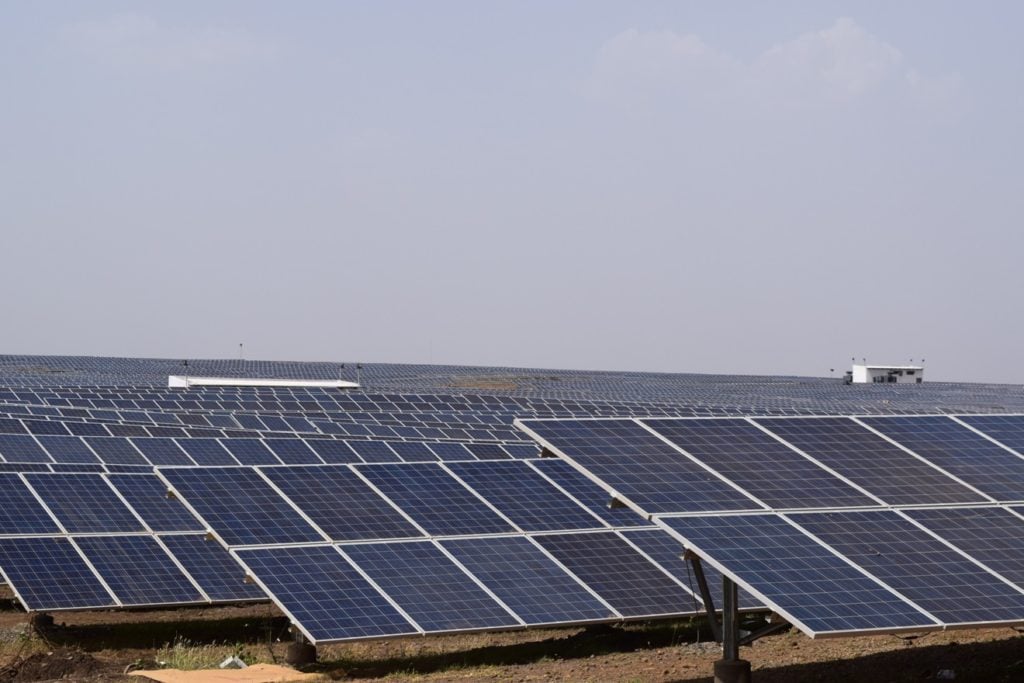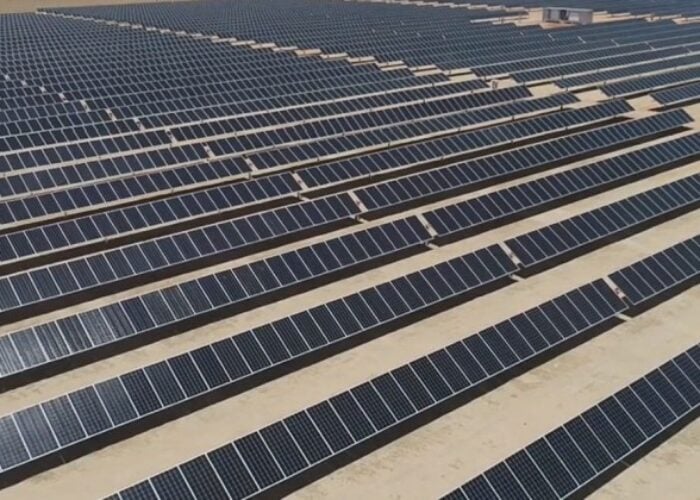
Indian solar module manufacturer Vikram Solar has signed a 393.9MW module supply agreement to supply the Khavda Solar park in Gujarat.
The agreement was signed with NLC India, a public sector energy and mining company.
Try Premium for just $1
- Full premium access for the first month at only $1
- Converts to an annual rate after 30 days unless cancelled
- Cancel anytime during the trial period
Premium Benefits
- Expert industry analysis and interviews
- Digital access to PV Tech Power journal
- Exclusive event discounts
Or get the full Premium subscription right away
Or continue reading this article for free
Vikram Solar said it would supply its 580Wp n-type tunnel oxide passivated contact (TOPCon) modules to the project, which is owned by the Gujarat State Electricity Corporation Limited (GSECL). The company said that its modules are listed on the Indian government’s approved list of models and manufacturers (ALMM) which was introduced to promote and increase the deployment of solar modules manufactured in India.
India’s Ministry of New and Renewable Energy (MNRE) announced the reimposition of the ALMM in April after suspending it from March 2023 due to concerns over an inadequate supply of domestically-made modules to meet demand.
Gyanesh Chaudhary, chairman and managing director of Vikram Solar said: “This purchase order not only signifies NLC’s deep trust in our expertise but also affirms our steadfast commitment to excellence. Vikram Solar is proud to be involved in India’s unparalleled decarbonisation initiative.”
The Khavda solar project is on course to be the “largest” in the world, with a target capacity of 30GW of renewable energy generation capacity when fully operational.
The initiative has also acted as a unifier for some of India’s biggest solar and renewable energy companies; in March, Adani Green Power announced the commissioning of 1GW of solar capacity at the site. Adani secured a US$1.36 billion debt facility in December to finance 2.1GW worth of solar at Khavda.
Vikram Solar is currently engaged in a joint venture with private equity firm Phalanx Impact Partners to build a vertically-integrated solar manufacturing facility in the US, with plans for ingot, wafer, cell and module capacity.






